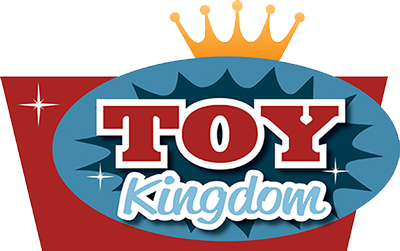Have you noticed an increase in the number of natural disasters not just in Australia but globally?
Disaster is defined by The International Federation of Red Cross and Red Crescent Societies (IFRC) as serious disruptions to the functioning of a community that exceeds its capacity to cope using its own resources. Natural, man-made, and technological hazards, as well as various factors that influence the exposure and vulnerability of a community, can cause disasters.
According to the 2020 Global Natural Disaster assessment Report, a total of 313 major natural disasters (excluding epidemic diseases) occurred worldwide in 2020, affecting 123 countries and regions. Among all these disasters, FLOODS caused 193, with the highest frequency, accounting for 61.66% of the total; 69 caused by STORMS (typhoons, hurricanes), accounting for 22.04%; 19 caused by LANDSLIDES, accounting for 6.07%; 14 by earthquakes, accounting for 4.47%; 7 by DROUGHTS, accounting for 2.24%; 6 by forest and grassland FIRES, accounting for 1.92%; 3 by volcanic eruptions, accounting for 0.96%; 2 by extreme temperatures, accounting for 0.64%.
You'll notice that the BOLD & CAPITALISED disasters are what we have been experiencing here in Australia, and we we're based on NSW's Far North Coast (Northern Rivers encompasses Byron Bay, Lismore and Ballina - where our stores are located) we've been hit HARD. Two years ago with the fires, and now the most recent two floods. It's been tough. What's shone through is the resilience of our community, the incredible support we give each other, and the love for our region as we rebuild.Worldwide, the most frequent natural disasters that cause so much catastrophic damage are flood and storm disasters. But, no matter what type or classification of disaster it is, the reality is, disasters affect thousands of people each year, which leaves communities in shock, experiencing emotional distress, anxiety, and trouble sleeping. Adults have a different way of coping after a disaster, as we naturally connect with each other and talk. Children, on the other hand, need a different type of support, as they manage the stress that they can't always verbalise.

Here are 10 ways we can support children through times of crisis and upheaval:
- OBSERVE - each child is unique, children have different behaviours. Some may be distressed, irritable, attention-seeking, while some can retreat into their thoughts, and are quiet, and it’s important that we are aware of changes in their behaviour.
- SHOW PATIENCE AND UNDERSTANDING - some children who have never been afraid of the dark or loud noises can suddenly become fearful and more sensitive, so as parents and caregivers, we need to remember that often a hug can be all that's needed.
-
SAFETY AND SECURITY - children need their families' love, comfort, and TIME. Offering blankets and soft toys can also help. Check out our plush and soft toys here, and perhaps let them choose one for themselves. When children have lost EVERYTHING, having ONE special something that they've been part of the decision-making process in, can make a huge difference.
- LISTEN - ask questions (but don’t force them to talk), ask about their needs, and let them talk and express their feelings without correcting or interrupting them. Don’t forget statements of reassurance (“We do all that we can to keep you safe.”, “we’re here to help each other.”, “Don’t worry, we're ok.”)
- ART OR WRITING ACTIVITY - some children are not good at expressing themselves verbally, so we can offer activities like writing, drawing or painting.
-
PLAYTIME - the best activity where children can express themselves, the best distraction from a difficult situation, and the best outlet to vent stress. Imaginary play is powerful, and can be interesting to observe. But also, perhaps some Jenga, Monopoly, or puzzles can be wonderful to do together. Check out our extensive collection of games and puzzles here.
- BE THE BEST ROLE MODEL - children are good imitators. If you’re also feeling overwhelmed, distressed, fatigued, and you're finding it hard to manage your own feelings, find a space and allow yourself to process in private or with friends. CHOOSING what you share with children is important. It's fine to be upset in front of them, but remember to reassure them you’ll soon be okay and you're there for them.
- RESTORE BALANCE - as soon as you can, slowly go back to old routines and follow as normal a schedule as possible.
- PLAN - invite and involve children in your family plan in case of a disaster
- INSPIRE - offer children opportunities to help others as this can help them create a sense of control. Ask them to write or create a card, volunteer as a family in a donation drive.
Through Toy Kingdom you can also help flood-community members by purchasing Gift Vouchers here and distributing it to a disaster-affected community yourself or anonymously.
THANK YOU for being part of our community. THANK YOU for your support, as we rebuild our Lismore store, and THANK YOU for supporting our online store, and our Byron Bay and Ballina stores. This is an extraordinary time, and we are beyond grateful for all that you do, and all that you are.
If you're affected by the recent floods and need support, there are a number of ways you can get help. Click this link - it's a great place to start.




